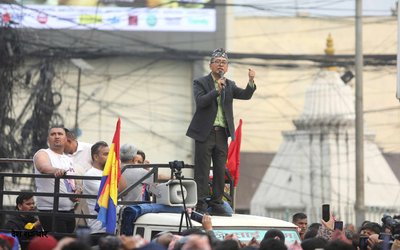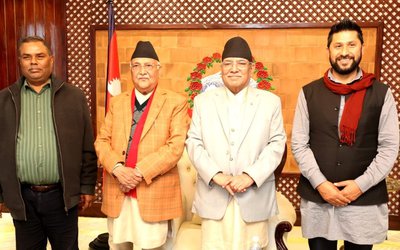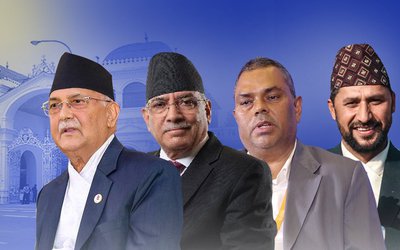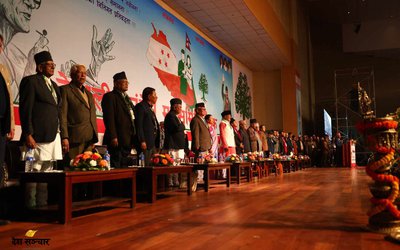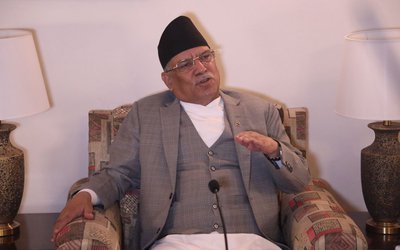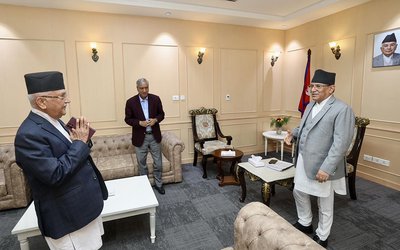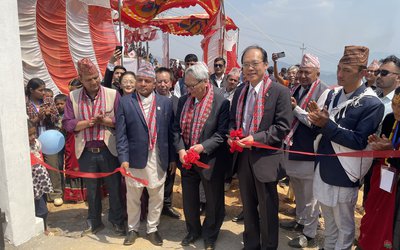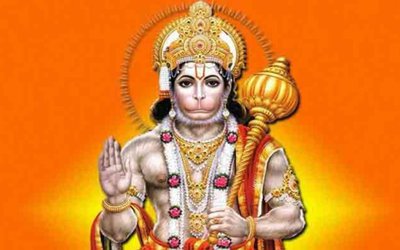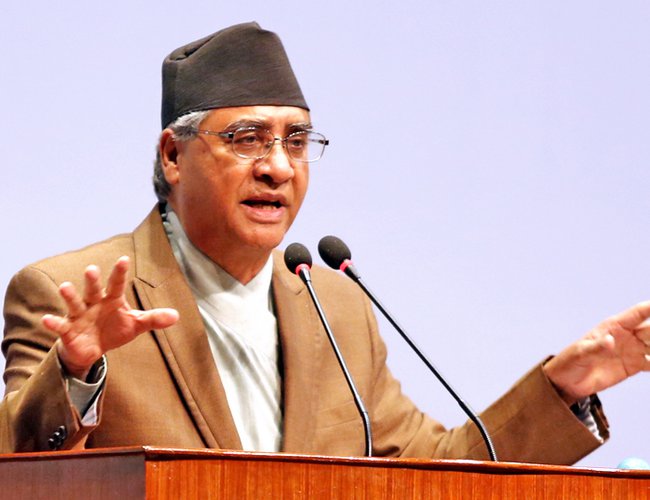
Nepali Congress leader Sher Bahadur Deuba had three tenures as prime minister but no good work to show. His fourth prime ministership is also going to be in a politically very sensitive time, with no better political and economic implications.
Out of 558 members presented at the voting, prime minister Deuba secured 388 votes short of 11 votes for two third majority. In voting, 170 MPs voted against Deuba. Deuba has been elected as the 40th prime minister of Nepal.
He will take oath Wednesday at President House in Shital Niwas. After winning the election, prime minister elect Deuba said his priority is to hold the elections and amend the constitution. "My priority is to strengthen relations with both the neighbors India and China," said Deuba.
With a decision of CPN-UML to end the obstruction of house, it is just a matter of hour to see Deuba as a prime minister as he is the sole candidate filed the nominations.
According to close sources, Deuba will take a oath of prime minister with small cabinet with seven. He will expand the cabinet next week.
If things go as planned, Deuba will be elected the prime minister next week. Although CPN-UML is likely to disturb the Legislature Parliament for a few days, delaying his ascension to the seat of prime minister, the time is politically and constitutionally favorable to him.
With the backing of four parties, NC leader Deuba has enough strengths to prove his majority in the Legislature Parliament.
Deuba was elected prime minister for the first time in 1996 following the reinstatement of parliament by a decision of the Supreme Court. Although he was able to pass the Integrated Mahakali Treaty by a two thirds majority in 1997, his government collapsed with one vote shortage as then Madheshi leader Gajendra Narayan Singh crossed the floor in his quest to test the majority in house.
He became prime minister in 2001 following the resignation of Girija Prasad Koirala. He dissolved the House in 2002 and former King Gyanendra dismissed his government in 2003 terming him “incapable”.
After the dissolution of the House, Deuba also split the party and formed Nepali Congress Democratic with his followers. Former King Gyanendra picked him up again as a prime minister in 2004 to lead the coalition government with CPN-UML. In 2005, former King Gyanendra again dismissed his government and put him in custody.
Twelve years after, at the age of 72, Deuba is almost likely to lead the government. His timing is crucial but difficult. His predecessor, Dahal, is taking all the credit, including holding the first phase local elections, posting the highest economic growth in two decades and joining One Road One Belt Initiative with China and thawing the relations with India, among others.
Deuba’s days will begin with a possible defiance and violence in terai by RJPN and a bleak economic scenario with declining remittances and predictions of abnormal monsoon.
Although Deuba is known for his flexibility and political maneuvering, it is very difficult for him to conduct the two tier elections, national and provincial, in his next nine months in office.

Sher Bahadur Deuba
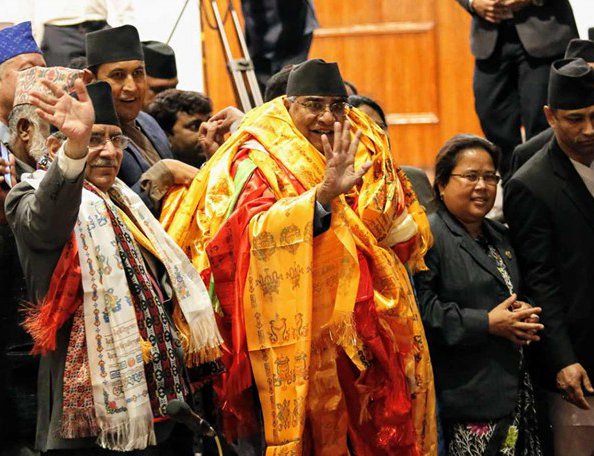
Prime minister Deuba at Legislature Parliament
- TANAHU HYDROPOWER PROEJCT: A Significant Achievement
- Apr 15, 2024
- AMBASSADOR HANAN GODAR: Sharing Pain With A Nepali Family
- Mar 30, 2024
- VISIT OF KfW AND EIB TO NEPAL : Mission Matters
- Mar 25, 2024
- NEPAL BRITAIN SOCIETY: Pratima Pande's Leadership
- Mar 24, 2024
- NEPAL ARMY DAY: Time To Recall Glory
- Mar 15, 2024

